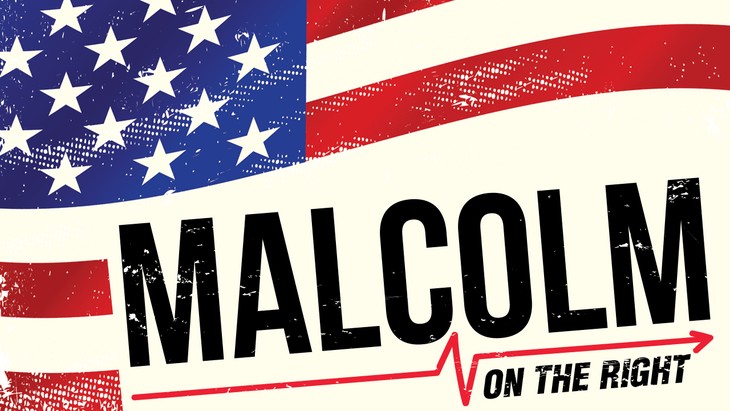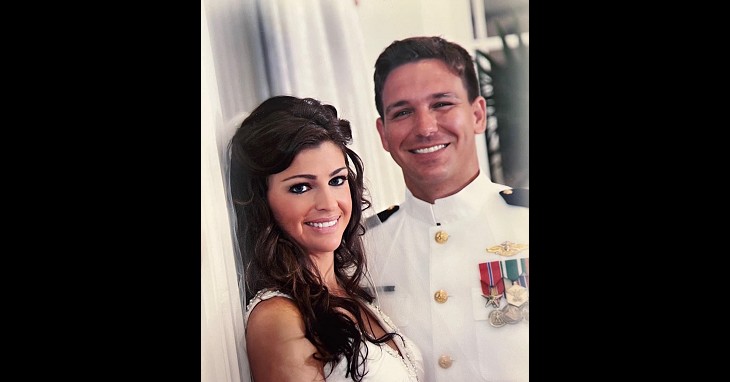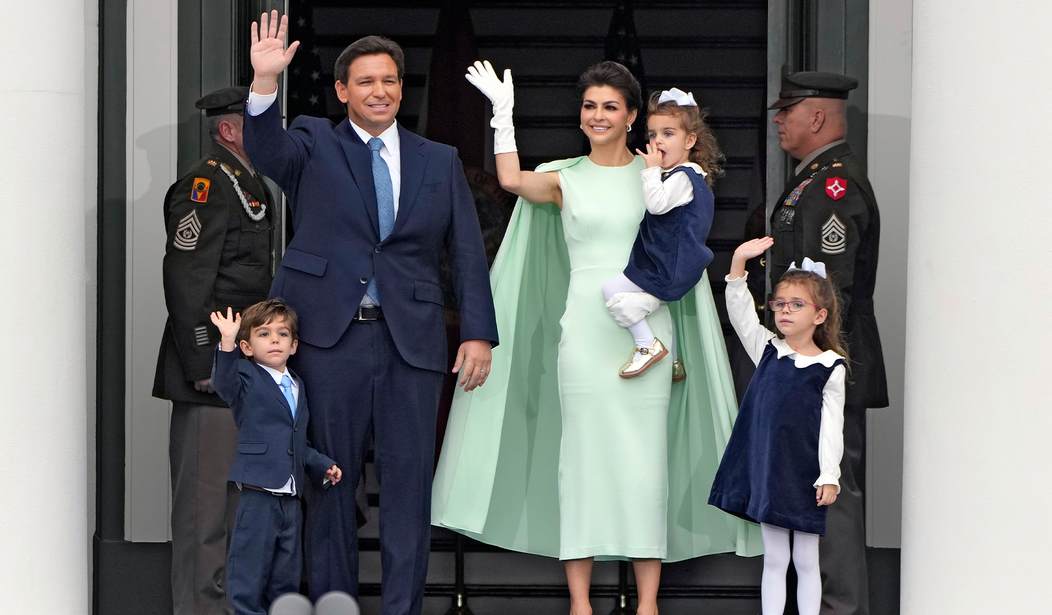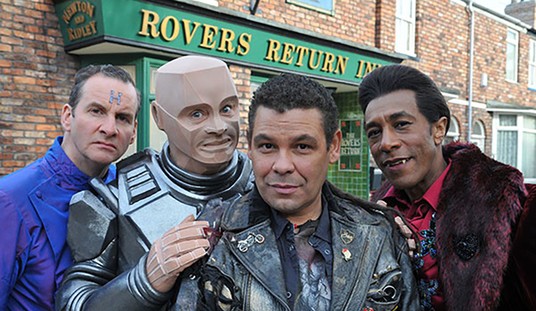The opinions expressed by contributors are their own and do not necessarily represent the views of RedState.com.
On the surface, little appears to be happening these days in the looming contest for the Republican Party’s presidential nomination next year. And yet, even as some welterweights, and one heavyweight, go through their “training camps” in preparation, it somehow already feels strangely late.
Practically, of course, it’s also too early to be drawing stark conclusions about who will represent the Party of Lincoln in what would be an historic re-match-up between the 45th and 46th presidents.
Or between two unranked contenders far less known and much younger than incumbent Joe Biden, who turns 81 this year.
We wrote last week about Biden’s puzzling hesitancy to pull the trigger on filing and announcing a reelection campaign that he’s claimed was his “intent” innumerable times since ousting Donald Trump. Fact is, Biden is chronically late for everything, except leaving for long weekends.
Such political constipation increases serious questions about the man’s genuine intentions, willingness, and mental judgments. And it puts his Democrat Party a lap down if Biden chooses or is forced somehow to sit out 2024.
Despite Biden’s claims of great progress, as measured by legislation signed, he faces serious headwinds and there are many reasons besides his advanced age that he should not run.
All of which makes virtually everything about the nation’s 60th presidential election unique and fascinating.
Here’s the overview:
All potential, viable Democrat replacements have vowed not to run next year if Biden does. Such a challenge within either party would doom any attempted White House lease renewal.
See 1980, when an ambitiously impatient Ted Kennedy challenged incumbent Jimmy Carter, who lost. See 1992, when Pat Buchanan challenged George H.W. Bush, who lost.
And see 1968. That’s when President Lyndon Johnson confronted an unpopular Vietnam War, poor job approvals, and Eugene McCarthy, an antiwar senator who nearly won the New Hampshire primary.
Johnson shocked the nation on a Sunday night 55 years ago this month by announcing he would not seek reelection. Johnson’s vice president, Hubert Humphrey, then lost.
Two possible Republicans, who would not likely have had any chance anyway, have said they will not run next year—Sen. Ted Cruz and ex-Gov. Larry Hogan. (Most Americans are not running, but saw no need to announce that.)
Two serious GOP candidates have announced: Trump, 76; and Nikki Haley, 51, a two-term South Carolina governor, former UN Ambassador, and state legislator.
Also announced on the GOP side is Vivek Ramaswamy, a 37-year-old tech entrepreneur and author of Woke, Inc. On the Democratic side, Marianne Williamson has announced she will run again, no matter what Biden decides to do about 2024.
Others have shown all the signs of a likely candidacy–publishing a book, going on a national promotion tour, suddenly agreeing to numerous media appearances, traveling to primary states to speak.
They are Mike Pompeo, 59, West Point graduate, former CIA director, Secretary of State, and House member; Mike Pence, 63, former vice president, Indiana governor, and six-term House member; and Tim Scott, 57, former state legislator and House member named to the Senate in 2013 by then-Gov. Haley.
And, of course, Ron DeSantis, 44, Navy veteran and SEAL Team legal advisor in Iraq, House member, and reelected Florida governor last year by 19.4 points.

Trump, a masterful media manipulator, hopes every one of them — and maybe others — enters the race, splits the non-Trump primary votes, and greases his path to a party plurality as the 16 other Republican candidates did in 2016.
Of these and other possible GOP wannabes this cycle, DeSantis is the heavyweight. He just came off a successful book tour (“The Courage to Be Free”) that launched sales exceeding the last two presidents’ books.
His trip included a visit to Iowa, not known as a major book market, and a speech at the Reagan Presidential Library, every conservative’s dream platform, that drew a standing ovation.
In national polls, he is closest to Trump. In some state polls, he beats Trump, who currently sees him as the main GOP threat.
DeSantis is unlikely to do anything public about a candidacy for at least two months, as he presides over a state legislative session with a GOP supermajority that the red state’s voters happily gave him.
That session should provide ample campaign ammunition to demonstrate his continuing conservative bona fides and achievements to a national party base just coming to know him and his existing achievements.
Behind the scenes, however, DeSantis is chatting up donors, lining up campaign staff, and trying to warm up his podium presence.
Democrats tend to opt for maneuvering legislators as their party flag-bearers (Kennedy, Johnson, Humphrey, McGovern. Gore, Kerry, Obama, Biden).
Republicans much prefer governors (Reagan, Bush II, Romney) or executives (Retired general and university president Dwight Eisenhower, Bush I, Trump). Legislators have fared poorly as GOP White House candidates in modern times (Ford, Dole, McCain).
Did I mention it’s still very early in the 2024 contest?
Millions of Republicans and non-progressives liked Trump’s America First, promises-kept policies, such as energy independence, tax cuts, deregulation, rebuilding the military, crushing the ISIS caliphate, conservative court appointments, no new foreign military adventures, tighter border controls including the Wall.
It was Trump’s extra-curricular activities that grew old, like the drumbeat of needless fights, name-calling, lack of rhetorical discipline, and turning on political allies.
For example, it amazed many that one of the sturdily loyal legs of the thrice-married, scandal-scarred president’s base was the evangelical community that spoke out and voted overwhelmingly for Trump.
In large part, this was for his rigorous support of religious freedom and adamant opposition to abortion in Federal District and Supreme Court nominees and government aid policies.
And Trump delivered.
This time, however, while expressing appreciation for Trump’s past work, virtually all of those evangelical leaders so far have been silent, so silent that Trump has complained publicly. Their excuse is what I mentioned earlier: It’s very early yet, almost a year out from primary voting.
The real reason is their doubts that Trump could win again with all his drama and inexplicable, pointless insistence on re-arguing the 2020 election results more than two years after. “What would you do in a next term?” seems much more relevant for a 2024 campaign.

Like many others, these religious influencers are also waiting to see who else comes along on the GOP side as a strong conservative without the ubiquitous, often useless confrontations that defeated Trump in 2020. Someone likely much younger than the 78 Biden was when he initially won and Trump will be in 2024.
Without even announcing, DeSantis fits that bill. “Florida,” he said at his second inaugural, “is where Woke goes to die.” He’s just slightly more than half Biden’s age. Imagine that debate stage contrast.
DeSantis, a Roman Catholic descended from Italian immigrants, has three young children. His wife, Casey, is a former local TV anchor and Golf Channel host who announced she was clear of breast cancer after months of treatment last year.
Much remains to be learned about DeSantis. How will the Florida native handle the pressures of campaigning on local issues in regions far from the Sunshine State? That requires poise and quick absorption of local issues that are arcane elsewhere. Issues like ethanol in Iowa.
That’s all up to him and his team.
Political history is replete with candidates whose star shined bright early on but faded in the heat of primary combat. Example, two governors: Texas’ Rick Perry in 2012 and Florida’s Jeb Bush in 2016.
National media will bird-dog DeSantis’ every step and misstep. Some young reporter will surely wonder if DeSantis can tell him the price of milk or the name of India’s prime minister, which the reporter had to look up. And make a big story if DeSantis doesn’t know.
If DeSantis answers correctly, no one will mention his knowledge, only if he flubs.
When Joe Biden got angry at an aggressive questioner during one Midwestern town hall in 2020, it drew little notice from a sympathetic media.
Same for when he forgot where he was and asked an Iowa audience how they felt about the aging infrastructure in Ohio. Ohio-Iowa four little letters in flyover country, what’s the difference anyway?
If a stumping Trump 2.0 remains the same campaigner as last time, he will harshly criticize and aggressively mock opponents and their families. So far, Trump has directed his attacks at DeSantis, whom he helped elected in 2017.
DeSantis has not responded in kind, calling Trump “my mentor.” At some point, he will need to address Trump directly.
Can the governor confidently handle that and does he have the stamina and concentration for the ups and downs of the party family infighting in primaries without damaging his or the GOP’s general election outlook?
We’ll see. But his background gives an indication. He received a Bronze Star for service with Seal Team One in Fallujah. He graduated magna cum laude from Yale and cum laude from Harvard Law School.
A lifelong passion has been baseball. In fact, he had just left practice for a congressional baseball game in 2017 when a Bernie Sanders supporter shot six other players there.
As a youth, DeSantis played in the Little League World Series for Dunedin, Florida. And then in college, he made the Yale varsity baseball team and, like the 41st president, George H.W. Bush, DeSantis was named captain.
His senior year, school records show, DeSantis batted a team-high .336, which any coach will say means you can keep your eye on the ball.














